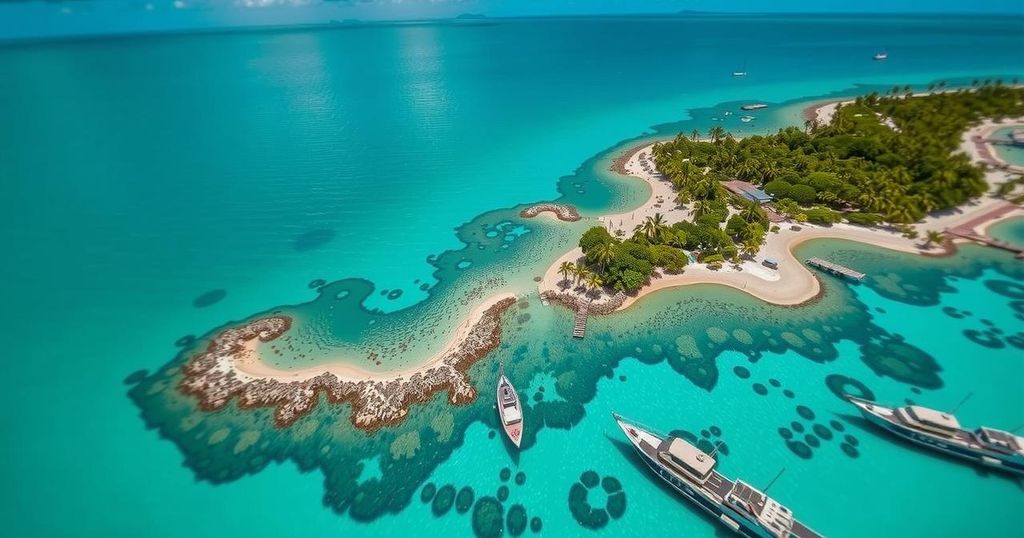The Bahamas Secures $120 Million Through Innovative Debt-for-Nature Swap to Combat Climate Change

The Bahamas has secured over $120 million through a debt-for-nature swap to fund marine conservation projects. The initiative aims to restore hurricane-damaged habitats and protect essential fisheries, supported by a new loan arrangement facilitated by Standard Chartered Bank and private investors. This is the first time private investors are providing credit insurance for such an effort, highlighting its innovative approach to climate change mitigation.
The Bahamas has initiated a significant financial strategy to address climate change by securing over $120 million through a debt-for-nature swap facilitated by Standard Chartered Bank and supported by private investors. This innovative arrangement allows the nation to repurchase its existing debt with a more favorable interest rate, thus unlocking funds for marine conservation projects aimed at preserving the country’s vital ocean ecosystems over the next 15 years. An endowment fund will subsequently ensure ongoing support for these initiatives beyond this initial period.
The financial resources generated from this swap are designated for the restoration of ecosystems adversely affected by Hurricane Dorian in 2019, as well as for safeguarding a marine area that exceeds the size of the Gulf of Mexico. Officials have emphasized that these protective measures are crucial for sustaining commercial fisheries that are integral to the national economy, particularly highlighting that the spiny lobster fishery contributes approximately $100 million annually to the Bahamas.
This development positions the Bahamas alongside other nations such as Belize, Gabon, and Barbados that have engaged in similar debt-for-nature swaps. Notably, this marks the first instance where private investors have offered credit insurance in such arrangements, along with introducing commitments specifically targeting climate change mitigation. The Nature Conservancy, which is collaborating on this initiative, underscores the uniqueness and potential impact of this approach.
The Bahamas boasts a commendable track record in environmental conservation, with over 17 percent of its coastal waters already safeguarded, encompassing more than 16 million acres of ocean. As the nation takes these innovative steps forward, it continues to set a precedent within the Caribbean for sustainable environmental stewardship and resilience against climate challenges.
The Bahamas is increasingly vulnerable to the impacts of climate change, which poses significant risks to its coastal ecosystems and economic sectors such as fisheries and tourism. In response to these challenges, the government has devised a debt-for-nature swap mechanism that allows the repurposing of existing debt obligations to facilitate environmental conservation efforts. This mechanism not only addresses immediate financial burdens but also creates a framework for long-term investments in climate resilience and ecosystem protection. The initiative highlights the role of international banks and private investments in promoting sustainable practices amidst growing global environmental concerns.
In conclusion, the Bahamas is pioneering a noteworthy approach to combat climate change through a debt-for-nature swap that releases substantial funds for marine conservation. This strategic financial maneuver aligns with the government’s commitment to environmental protection and sustainable economic growth. By enhancing local ecosystems and supporting vital fisheries, the Bahamas exemplifies how innovative financial solutions can contribute to resilience against climate change while fostering economic development.
Original Source: san.com






